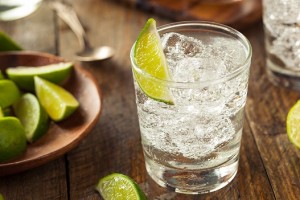Gin is a distinctive spirit that is beloved by people all over the world. The next time you order a gin and tonic at the bar, you may want to think about how your liquor was made. Due to its aromatic taste and floral notes, gin is a remarkably flavorful and unique type of alcohol. To highlight the special characteristics of this alcohol, let’s delve into some of the basic steps of how gin is produced.

Neutral Spirit Is Soaked in Botanicals
The first step of transforming basic alcohol into gin is to soak neutral spirit in a blend of botanical ingredients. This phase of the gin production process is known as the mash. Special ingredients, such as juniper berries, are carefully soaked in neutral spirits so that a unique flavor is imparted to the base.
The Mash Is Distilled
While it is possible to drink gin that has been left at the mash stage, most professional gin producers choose to further distill their products. After the mash has been given a chance to fully mature, the resulting liquid is passed through a still. The still creates vapors, which in turn purify and heighten the flavor of the gin.
The Spirit is Diluted
After the mash has been fully distilled, it will be extremely high in alcohol. To create a final product that is pleasing on the palate, the gin producer will usually dilute the full strength gin with purified water. An alcohol content of 45 percent is standard for all commercial gin products.
If you would like to serve premium gin cocktails at your next dinner party, be sure to get in touch with Professional Bartenders Unlimited. We offer fully certified bartenders for hire, and we will be able to create custom cocktails and other beverages that you will be thrilled to serve at your next event. Give us a call at (520) 721-1577 to learn more about the fantastic mixology services that we have to offer you.
